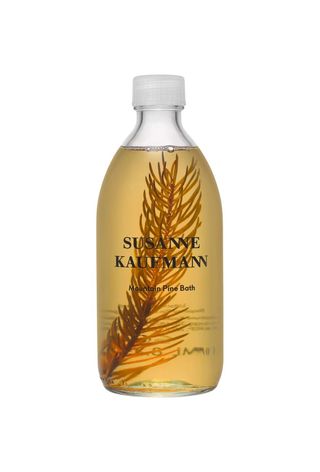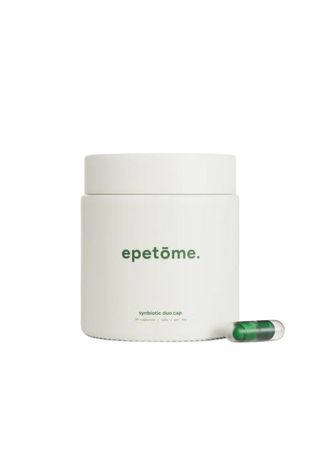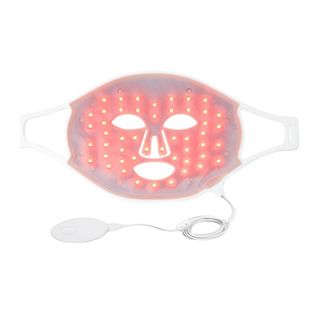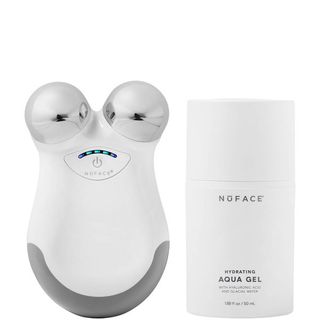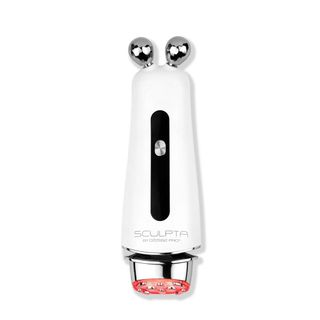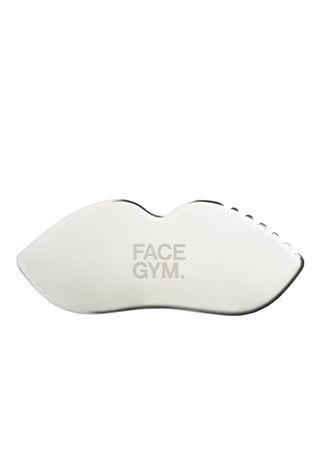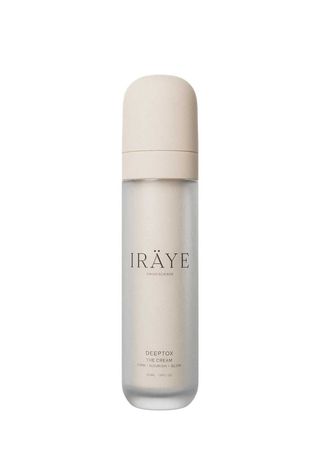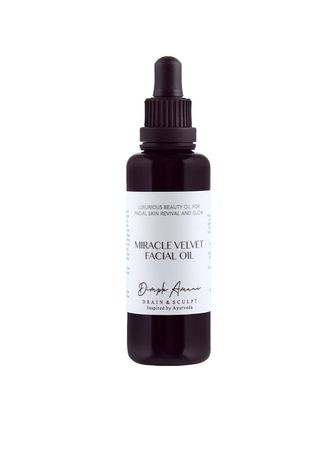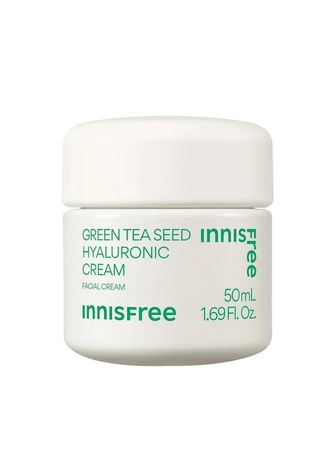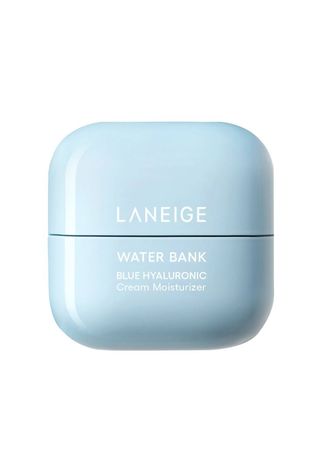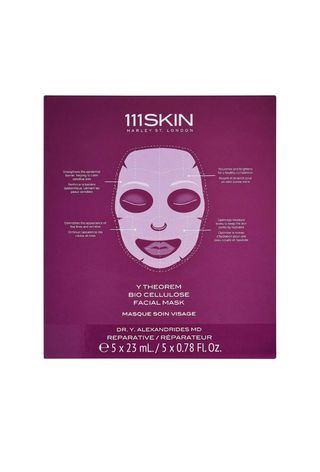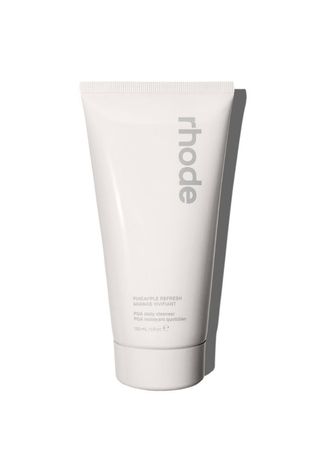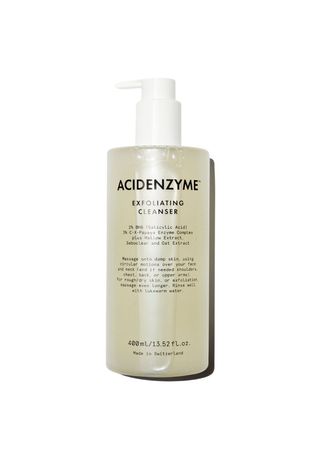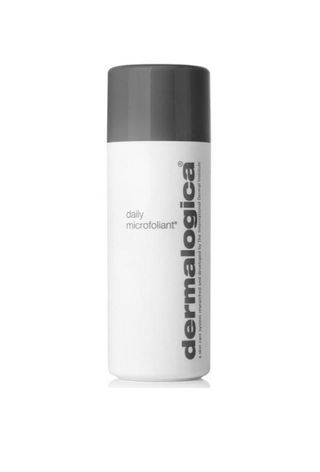6 Skincare Trends That Are Dominating 2024, According To Experts

In my opinion, if there’s one area of the beauty industry that has the most conflicting advice and is shrouded in confusion, it’s skincare. With the rise of TikTok content, we’ve never had more access to information. And while it’s great that this abundance of advice is at our fingertips, that information can quickly become overwhelming—or even just not right for our own individual skincare needs. The drive to keep up with the latest viral products , the arrival of new launches and buzzy new ingredients each week means that we’re trying out more and more skincare products on the regular, and this mixing and matching isn’t so great for our skin. Take it from me. In my job as a beauty editor (where I’m lucky to have access to new launches) my complexion has been compromised by testing too many products after being seduced by clever marketing and pretty packaging. I’ve learnt that the allure of trying something new every single week does not do any favours for my sensitive skin.
Needless to say, it’s also about who we get our information from on our FYP, as well as what they’re advising. Anyone can declare themselves a skincare expert online, and while they may be well-meaning, I prefer to get my advice from the pros who are qualified to share advice and know their stuff. Think dermatologists, doctors, nutritionists and facialists—those experts who have dedicated years of study to their craft and see a variety of complexions day in, day out, and know the evidence-based research that can de-bunk skincare myths that often run rife online.
With that in mind, I decided to approach the professionals to talk through the only skincare trends you need to know that will truly help you achieve your healthiest skin yet. Scroll ahead for the expert-backed tips, advice and products that your skin will thank you for.
Skincare Trends 2024
1. Anti-Inflammatory Skincare
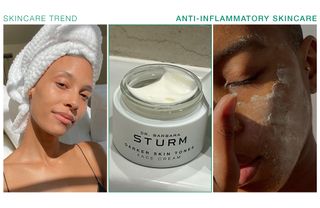
Surprise, surprise—modern life isn’t so great for our skin health. Stress, UV rays, pollution and high sugar diets are just a handful of the factors that can cause inflamed skin. But why is inflammation bad for our skin?
“Inflammation is the root cause of much of the body and skin’s dysfunction and disease, and inflammatory influences are everywhere,” says Dr Barbara Sturm. “Everything we ingest or touch, including the air and the water, contains inflammatory triggers. Inflammation is the body’s response to irritation and injury and a primary trigger for acne, premature aging, redness, enlarged pores, and other skin disease and dysfunction including psoriasis, rosacea and perioral dermatitis,” she says.
From the overuse of harsh skincare ingredients combined with other lifestyle factors, many of our complexions are feeling compromised and more sensitive than ever. “We are bombarded every day with inflammatory influences, and they include everything from harsh skincare ingredients to UVA and UVB rays, tailpipe emissions, smoking, excessive alcohol consumption, high stress levels, and consuming an inflammatory diet like sugar, fried foods and processed meats,” says Dr Sturm.
Although we can only control our environment so much, there are ways we can mitigate skin inflammation. “If we learn what the inflammatory and anti-inflammatory influences are, we can adjust our lifestyle accordingly and it will have both an immediate and long-term effect on skin aging and your overall health,” she says. “I advise against an approach deploying aggressive acids like retinol and harsh skincare ingredients because they destroy rather than repair the skin matrix and promote inflammation, weakening your skin and making it vulnerable,” adds Dr Sturm. “The goal with skincare is to soothe and reduce inflammation, not cause it, and skincare should never cause any discomfort. If your skin feels comfortable, hydrated and isn’t experiencing irritation, redness or dysfunction, that is a hallmark of effective skincare.”
Look to barrier boosting skincare such as ceramides along with skincare that supports the skin’s microbiome for skin that’s cool, calm and glowing.
Shop The Trend
2. Skinside Out
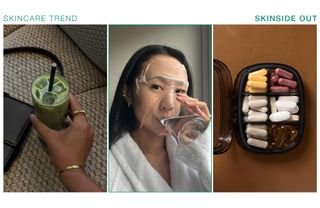
Going hand-in-hand with skin inflammation is the skin-gut axis and supporting our skin nutritionally from the inside out, as well as with skincare. Think of it as a 360-approach for healthy skin from within. “It’s not just about putting a topical cream on; there is a holistic approach to reducing inflammation and achieving wellness, which includes adopting a simple, anti-inflammatory lifestyle,” says Dr Sturm. “This means making sure you get enough sleep, take daily exercise, avoid stress, protect against urban and digital pollution and avoid excess alcohol, sugar, fried and processed foods—and instead, enjoy delicious anti-inflammatory foods like avocados, salmon, olive oil, nuts, berries, and green tea.”
Shane Cooper, cosmeceutical consultant, beauty and aesthetics expert, is seeing more clients in his clinic embracing this. “One thing I’ve noticed is the increasing focus on skin health. Even among my clients, there’s a shift away from heavier makeup looks toward embracing natural skin glow. At my clinic for example, there has been a significant uptake in interest in our exclusive facial treatments,” he says. “Treatment also extends beyond the skin to include gut health, skincare routines, hydration, and overall lifestyle, which play a significant role in how our skin looks. General well-being has certainly grown in importance, and the pandemic has really made people focus on their lifestyles and choices.”
It’s a shift that Dr Thivi Maruthappu, consultant dermatologist and nutritionist, has also seen. “In 2024, I predict that the convergence of nutrition and skincare will continue to boom, focusing on ingredients that work both inside and out—think of the collagen peptide trend of the last few years, we’re more and more aware of collagen peptide supplements and in our skincare too,” she says. “Likewise, as we focus our attention on our gut microbiome with probiotic supplements, we will be aiming to boost our skin microbiome too.”
Of course, achieving this balance is easier said than done, which is why supplements can help to support you skin and wellbeing. “If you sometimes find it hard to follow a healthy diet in today’s fast paced life, what makes a huge difference to me is my Sturm Inside supplements which boost wellness while shoring up likely deficiencies,” says Dr Sturm. “I take Skin Super Anti-Aging (£65) each morning, which is packed with ingredients that contribute to the maintenance of skin health and help protect from oxidative stress, and my Good Night supplements (£65) in the evening, which help promote a more restful and restorative night’s sleep,” she says.
Shop The Trend:
3. Go Go Gadgets
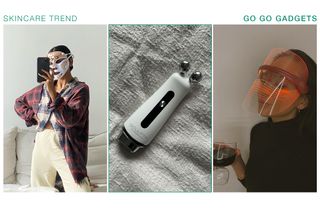
At-home skincare gadgets have boomed—particularly LED masks, as well as microcurrent and radiofrequency devices which can bring maintain results of an in-clinic treatment to your home. “There’s been a real growth over the past twelve months in launches of masks that are both really effective but also retailed at an accessible price point which has really spurred on the use of at-home devices. While products for home use won’t be quite as powerful as those used in professional treatments, they are still beneficial.,” says Grace Day, aesthetician and Who What Wear UK contributor.
“LED light therapy uses low-level, safe wavelengths of light to treat the skin. It’s quick, painless, non-invasive, and suitable for a wide range of skin types and concerns, so it’s easy to see why it’s so popular,” she says. “Benefits include stimulated collagen and elastin production, reduced inflammation and redness, a reduction in acne-causing bacteria, and the healing and repairing of damaged and scarred skin.”
The influx of LED masks means that there are more than ever to choose from. So how do you know what’s actually going to work? “The key is to ensure that the mask has a large number of lights on it and that the wavelength of light it uses is a specific number and not a range of numbers. If a brand doesn’t tell you this information, there’s a reason why.” says Day. ” I advise clients to look for devices at around the £250-350 price point.”
Microcurrent devices and radiofrequency devices are also trending at-home gadgets to try, which help to target the facial muscles to lift and sculpt as well as help kickstart collagen production. NuFace’s is a favourite of many for lifting and sculpting, while Deesse Pro’s Sculpta device harnesses LED, microcurrent and radiofrequency modalities all in one device to address a whole range of skin concerns in one.
Shop The Trend
4. Lymphatic Drainage
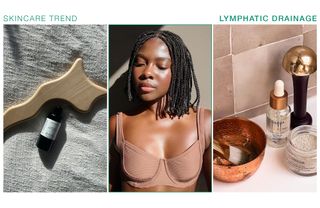
From gua sha facials to massages, lymphatic drainage is another trend that continues to gain momentum. “We saw lymphatic drainage body massage really kick off as a trend last year, with people sharing dramatic results after just one treatment. This year, I think we’ll see the same happen for lymphatic facial treatments,” says Day. And it can benefit both the body and the face. “The lymphatic system is a network of delicate thin vessels throughout the body and face,” says Dimple Amani, lymphatic drainage expert. “It drains fluid which sits below the skin called the lymph that has leaked from the blood vessels into the tissues and empties it back into the bloodstream via the lymphIt supports and boosts the body’s immunity and activates the detoxification process,” she says. “Lymphatic drainage benefits the full body all over as it drains all the toxins out from our body. Overall benefits of lymphatic drainage are countless as it makes you feel lighter, reduces water retention and puffiness, de-bloats , boosts immunity, improves health and relaxes you mentally,” she says.
For the face specifically, it can really help with a whole host of skin concerns. “This is another treatment that has benefits for a wide range of skin types and concerns. Most notably, it helps to reduce excess fluid, which helps to decrease puffiness and give the face a more sculpted, lifted appearance,” says Day. “Unlike aggressive massage techniques that have been popular in recent years, lymphatic massage is very light and gentle but is still incredibly effective. It’s especially good for those with sensitive or acne prone skin for this reason,” she says.
It ties into a resurgence in hands-on facials, which bring about their own benefits for the skin. “The resurgence of hands-on facials is no surprise, due to the personal and attentive touch it adds to a facial experience,” says facialist and skincare expert, Donna Bartoli. “The ability to sculpt lymphatic pathways effectively using your own hands and knowing where someone might hold or carry tension cannot be achieved by a tool. Through gentle, targeted movements, skilled practitioners can promote lymphatic drainage to see dramatic results in lifting and shaping the face, reducing puffiness and promoting a radiant complexion,” she says. “I favour this tactile, holistic approach in my facials, it gives me the feeling of connection and to the client, utter relaxation.”
While best results will be seen from a professional treatment, Day says that it is possible to incorporate lymphatic massage into your routine, whether it be by cleansing or by adding in a dedicated massage step using facial oil. “Focus on draining slowly and softly from the inside of your face towards the earlobes, then drain down your neck,” she says. To maintain the benefits of a full body lymphatic massage, Amani recommends “drinking lots of fluids and herbal teas with ginger, calendula and adding high water content foods,” such as cucumber into your diet. “Use massage oil everyday and massage upwards towards the lymph nodes which are located in your underarms, groin, behind knees and ears. Use body and face tool to move lymph the fluids and activate lymphatic system,” she says.
Shop The Trend
5. Glass Skin
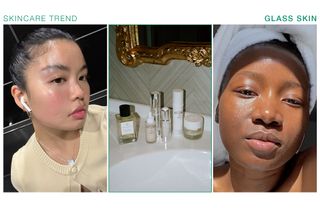
According to a report from Klarna, searches for glossy skin have increased by 2026% from last year, and it seems we’re all in search of unlocking glass-like skin. Originating from Korea, the trend for radiant skin shows no sign of stopping. “I have over 15 years of experience working as an aesthetic doctor in both Hong Kong and South Korea, where the concept of glass skin originated. In far east Asia, they are obsessed with achieving and maintaining hydrated, smooth and poreless skin, which essentially looks as refined and luminous as glass – hence the term ‘Glass Skin’,” says Dr Ivy, aesthetic doctor for 111 Harley St. Such has been the demand, 111 Harley Street has devised its own glass skin treatment in-clinic, which combines polyneucleotides, Botox and filler customised to the individual.
“The products are administered in a mesotherapy technique and micro droplets of the product are mixed together along with polyneucleotides,” says Dr Ivy. “Each of the elements serves a different purpose: the Botox refines open pores and gives a tightening effect, the dermal filler hydrates and gives a plump dewy look, whilst the polyneucleotides actively rejuvenate the skin and stimulate collagen and elastin production and give a brightening effect to the skin.” The result? Glass-like skin.
For creating radiant skin at home, you want to take a holistic approach to ensure your complexion glows from the inside out, with lifestyle and good skincare both playing a role. “To maintain the look of glass skin at home, it’s important to remember that that skin is an organ and reflects our lifestyle. So stay hydrated, ensure your diet is full of fruits and vegetables, and exercise regularly to support the results,” she says. “I also recommend Rejuvenated H30 Hydration supplement (£25) to help hydrate the skin from within and 111Skin’s Y Theorem Bio Cellulose Facial Masks (£90) which helps to reduce the effects of environmental factors and achieve a plumper, brighter and calmer complexion. This is a great mask to apply once a week after you cleanse your face.”
Of course, there are plenty of incredible Korean skincare brands, such as Laneige, Corsx and Innisfree, to get acquainted with for unlocking a healthy glow with nourishing, barrier-restoring and skin-quenching ingredients that your skin will thank you for.
Shop The Trend
6. Enzyme Exfoliation
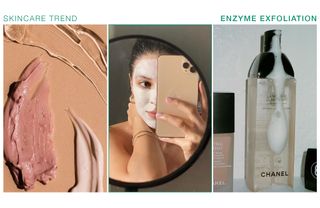
Over the past ten years we’ve seen the rise of exfoliating acids, but for many, these can often be too aggressive, particularly so for sensitive skin types. “As exfoliating acids have decreased in popularity and more people are aware of and focussing on their skin barrier health, I’m noticing people are much more wary of using exfoliants in their home skincare routines,” says Day. “While we definitely saw trends that inspired over zealous exfoliation in the past—and many people are still experiencing the side effects of this—it is still important to exfoliate skin,” she says. “Exfoliating helps to remove the dead skin cells that can make skin appear dull and feel textured, and can lead to congestion and breakouts.”
Day’s advice? Go for enzyme formulas, which gently nibble away at dead skin cells to reveal a glow without upsetting your skin barrier. “Avoid scrubs and acid-based products and use enzyme-based exfoliants instead. Enzymes exfoliate in a very gentle way, by breaking down the proteins in the upper layer of our skin. This helps to smooth and brighten skin without compromising the skin barrier. I recommend products like Rhode’s Pineapple Refresh Cleanser (£28) or Dermalogica’s Microfoliant (£65)— use them in the shower for best results, the steam will activate the enzymes.”






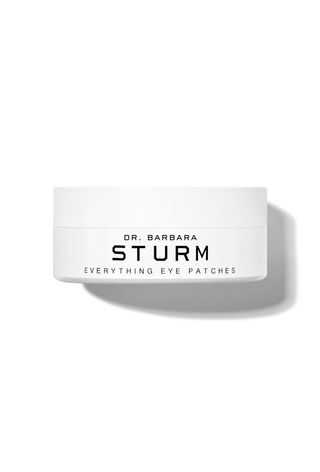
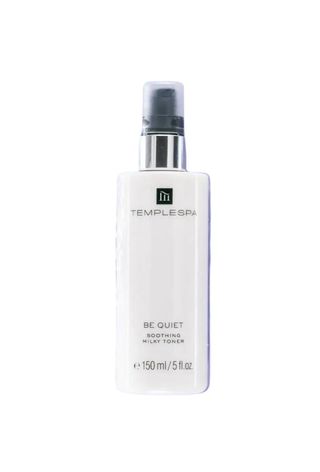
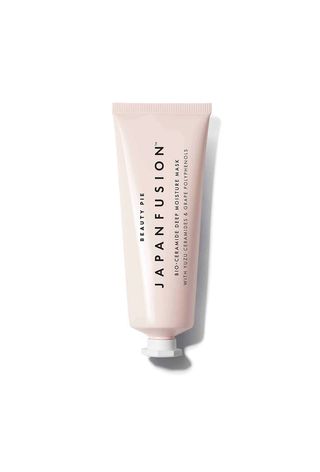
![Skin Super Anti-Aging [skin Food]](https://cdn.mos.cms.futurecdn.net/xkxFF7uNx22UcWjXncc2k3-320-80.jpg)
